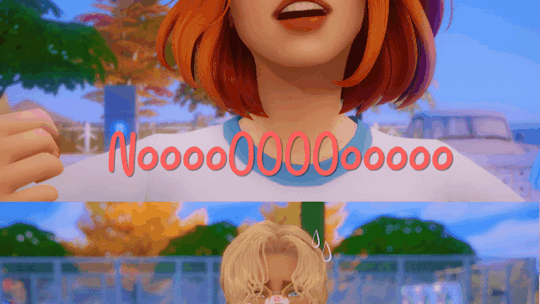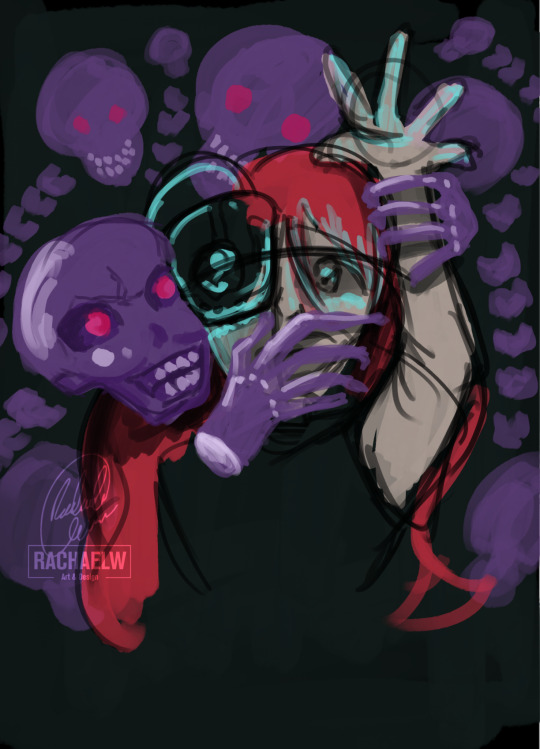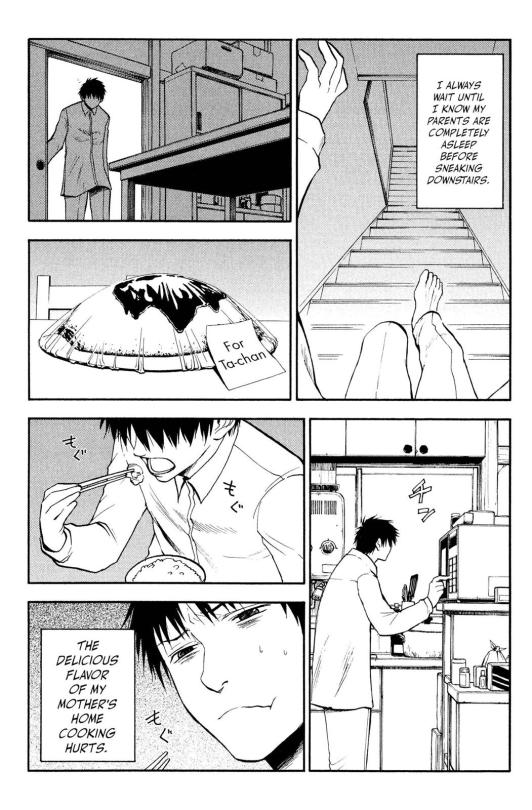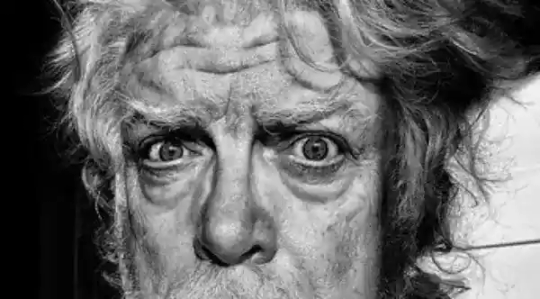#Social Withdrawal
Text
situational mutism is years and years of being frozen and forced to endure situations where you can't move or speak or communicate how you want.
🌹but you know what it also is?
being situationally mute is entering safe situations and spilling everything. it is a rushing sense of relief and safety.
it is the joy of speaking to someone for the first time. of having a social interaction that is so positive and beautiful that your brain can't twist it.
it’s when someone asked me a question and three people spoke in unison to answer for me.
it’s people who reached out when isolated self. it’s all the kind people.
it’s leaving the old situations behind, that were unsafe beyond just cognitive distortions.
and surviving. enduring hours and seconds. counting down.
only to enter new places with anticipatory anxiety, but maybe it’ll be okay. maybe it’ll be better, safer, gentler.
you deserve the dream you survived for. 🌹🌹
#survivalpunk should be a thing.. also if anyone has any reccommendations for sm songs lmk. might make a post on it#situational mutism#selective mutism#social anxitey#social anxiety disorder#social withdrawal#sm tag#trauma tag
120 notes
·
View notes
Text
god, i know it's my own fault that no one asks/wants to hangout w me anymore but seeing ur friends post pics of themselves with only you being left out...feels bad man
#vent#stfu bree#actuallyocd#actuallymentallyill#fake friends#toxic friends#disorganized attachment#abandonment issues#social withdrawal
116 notes
·
View notes
Text
On today's episode: how trauma1 fuels cognitive dissonance, specifically when healing from withdrawal.
×
The emergency tactics of the human brain are effective methods of self-preservation as well as spectacular exercises in self-sabotage.
Take stress: the ability to enter 'fight or flight' at the blink of an eye is an outdated function, working as intended. Modern threats to our survival are much more tangential than your friendly neighbourhood sabertooth tiger, but the nervous system still responds to due rent as it would to a predator.
Social withdrawal as a trauma response has aged a bit better - creating a buffer between us and the people that hurt us still serves to give us time to lick our wounds without the risk of reopening them - but there are significant downsides to keeping your distance for longer periods of time (including but not limited to: depression, heart problems, existential torment2, a shortened lifespan).
In pervasive situations, the detrimental effects of isolation have to be weighed against whatever drove us there in the first place. Both can be incredibly harmful to our sense of community and sense of self, and if we are repeatedly cycling back and forth between opening up and drawing back, the two sides might feed into each other to create a merciless self-fulfilling prophecy.
Each failed attempt to reintegrate - every time you were a little too bold or let your guard down a little too soon - justifies and perpetuates the (real or imagined) inadequacy that others us from the rest of the group. Trauma knows better, why didn't you listen to it? Why would this time be any different?
×
If you're wondering if there's a name for this, the answer is yes. Rejection-sensitive dysphoria (or RSD) is characteristic of neurotypes that commonly experience social rejection at a young age, fine-tuning our perception of exactly that to a painfully counterproductive degree.
In previous posts, I've talked about how growing up undiagnosed is permeated by a constant feeling of being in the wrong - RSD kindly provides a "better safe than sorry" approach to the fallout of whatever it is we've said or done this time.3
It should come as no surprise that developing self-compassion (arguably our greatest asset in caring for our mental health) is a rather grueling task for this subgroup of society. After all, compassion isn't that readily offered to us, especially the kind that comes from a place of understanding.
×
Coming out of isolation signals the end of a metamorphosis that, if we've managed to unlearn a bit of fearful perfectionism, may involve having a few new boundaries in place, perhaps a pinky promise with yourself to do whatever it takes to show up authentically in some way.
This is where the cognitive dissonance comes in, because now that you're going out and talking to people again, there is a raging battle going on in your head. Inside of you there are four wolves:
- one that's determined to find some genuine connection and is ready to meet people halfway;
- one that would rather pretend to be a papillon than risk ever getting hurt again;
- one that is convinced you are entirely undeserving of anyone's time and should go rot in a hole;
- and one that's angry at having to isolate, angry at having to do the work, and very fucking angry at having to wheedle your way back into people's lives for the sake of your stupid mental health.
Overthinking minute interactions is difficult to avoid when you've done nothing but think for the foreseeable past, and now you've got all these built-up feelings grappling with each other while you're trying to remember how socialising works.
Also, people are generally more well-meaning than they are frank, and if you're not tuned into the non-verbal gestures station you are at quite the disadvantage in determining what sort of impression of you people are left with, something that scares me more than I'd like to admit.
Still, what can a girl do but try?
Whether we've given up on it or not, connection is our north star in this whole mess or a journey. We cannot ignore the pull to be seen (even those of us who hate being perceived) for who we are.
×××
1 Terminology side note: when I say "trauma", I'm using the clinical definition.
2 Great read. Turns out that isolating really puts you in touch with your own mortality (and I thought I was just being extra).
3 Some say it's a form of CPTSD.
#ramblepost#trauma and cognitive dissonance#existential torment#social withdrawal#brain tactics#quick mafs#neurodivergent#rejection sensitive dysphoria#rsd#it sounds nicer in polish
3 notes
·
View notes
Text
𝓼𝔂𝓶𝓹𝓽𝓸𝓶𝓼 𝓸𝓯 𝓼𝓬𝓱𝓲𝔃𝓸𝓹𝓱𝓻𝓮𝓷𝓲𝓪
❥ Avolition: lack of motion and the inability to pursue any sort of goal, even something simple like making or taking a phone call.
❥ Anhedonia: inability to experience pleasure from social situations or activities like eating, touching, or sex.
❥ Social withdrawal: lack of interest in being with other people.
❥ Difficulty paying attention: for example, staring off aimlessly while someone is speaking to you.
❥ Apathy: lack of feeling, emotion, or interest that may show up as poor personal hygiene, or a lack of concern for yourself or others.
❥ Alogia: Difficulty speaking in part due to limited vocabulary and the inability to use detail when communicating.
#seriously schizophrenic#paranoid schizophrenic#schizoaffective#pyschosis#mental health#depression#age regression#apathy#alogia#social withdrawal#anhedonia#avolition#mental illness#mentalheathawareness
52 notes
·
View notes
Photo




Alone😥
previous- next
This is a comedy story but I really want to show Benjamin's weaknesses and fears
#social withdrawal#sims story#sims 4#yellow gen#bumbeblee school#sims 4 high school years#nsb challenge#social phobia#nsb#nsb gen 3#sims 4 storytelling#sims 4 gameplay
36 notes
·
View notes
Text
There are two reasons why I don’t attend gatherings or leave my house to see people i wanna see:
1. to avoid panicking on the streets and causing trouble to others, including random strangers, people in restaurants, and people with me like my family or acquaintances
2. those are places and people that my parents don’t want me to go to or hang out with, or that they want me to join their gatherings instead
so even if it’s someone who has come back from other countries, and they are people who i wanna meet (not necessarily people i know personally), i’m just gonna not go at all. i hate myself, i hate my awkward and cowardly and scared-of-people ass, i don’t hate my parents cuz they are very nice and it’s probably just me being wrong and knowing bad people.
ps dont mistake me as having social anxiety, cuz i am not diagnosed and will not get diagnosed, according to my psychiatrist’s professional opinion, thank you
3 notes
·
View notes
Text
Slept well, and then operation donuts went just fine.
I was a little anxious going into the packed donut shop, but the girl at the counter was all smiles and I was able to articulate clearly and smoothly. I don't know why some of the patrons there were clapping, but eh. That was the first time I've gone out and talked to a stranger in person, of my own volition since, yep. 15 months ago when I went to the primary care doctor in Oct. 2021.


14 notes
·
View notes
Text
Restless to tired.
Lost in my mind, a constant haze,
Thoughts scattered, hard to convey.
Social once, now withdrawn and alone,
Sleep deprived, then oversleeping, a drone.
Maladaptive daydreaming, a constant escape,
A world so perfect, a place to take shape.
But in reality, a losing fight,
My mind trapped, can't take flight.
The crave for space, to be alone feeling trapped,
A heart so heavy, the soul feeling capped.
Unable to make decisions, choices so tough,
Nothing matters, it's all getting rough.
This depression, a heavy weight,
A constant battle, an unending debate.
A darkness so deep, a pit so wide,
The light so distant, and nowhere to hide.
The journey ahead, a long winding road,
With no clear destination, and nowhere to unload.
But with hope and strength, I'll try to mend,
To find a way out, to break and to ascend.
So I'll try to keep going, through the thick and thin,
Endlessly hoping for a brighter day to begin.
Trying to take the lead, and finding my voice,
And in the end I'll break free,
but with a heavy heart and no rejoice.
3 notes
·
View notes
Text



A bunch of coping-mechanism WIPS. One day I might finish them, if life stops throwing me scenarios that drive me to drawing creepy skulls, sinking knights, and teacups in a storm.
(If there's enough interest I might go into detail about these with a reblog or edit but I just lost like 2-3 hours worth of writing on just one of them so I'm gonna not touch it for now. Thanks tumblr.)
#WIP#pmdd#haemochromatosis#mood swings#social withdrawal#isolation#storm in a teacup - or teacup in a storm#adventures of an iron maiden? idk#etluwips
2 notes
·
View notes
Photo

The single most #relatable page from Welcome to the N.H.K. (NHK ni Youkoso!)
#NHK ni Youkoso!#welcome to the nhk#hikikomori#social withdrawal#manga#anxiety#tatsuhiro satou#Insomnia#NHK
9 notes
·
View notes
Text
for those who feel trapped. for those who feel hunted and threatened. for those who have to hide. it’s a horrible feeling. see you. was where you are. know what it’s like.
you will get out. you can get through it. there are people like you, who are going through what you’re going through. who’ve been through it the same thing, and survived. we survive.
you are not alone. 🌹🌹
#trauma recovery#actually traumatized#social isolation#social withdrawal#no friends#emotional abuse#i feel trapped <- tag
69 notes
·
View notes
Text
The realisation that I feel lonely because I haven't left the house in three days somehow came as a shock to me.
0 notes
Text
Identifying when a loved one may need homecare in Pittsburgh, Pennsylvania, can be a real challenge. Knowing the signs can help you ensure they get the necessary support to maintain their quality of life.
1 note
·
View note
Text
Anxiety is a common experience. It is a normal and natural emotion that everyone experiences and is known to be the body’s natural response to stress or potential threats. While this is a common experience, anxiety can become a serious concern when it persists over time and interferes with an individual’s normal daily functioning
0 notes
Photo

New Post has been published on https://www.knewtoday.net/early-signs-and-symptoms-of-psychiatric-problems-recognizing-potential-indicators/
Early Signs and Symptoms of Psychiatric Problems: Recognizing Potential Indicators

Psychiatric problems can encompass a wide range of conditions, each with its own unique set of signs and symptoms. It’s important to note that these symptoms can vary greatly depending on the specific disorder and individual factors.
Psychiatric problems, also known as mental health disorders, encompass a broad range of conditions that can significantly impact an individual’s thoughts, emotions, behaviors, and overall well-being. These conditions can affect people of all ages and backgrounds and may manifest in various ways. Recognizing the early signs and symptoms of psychiatric problems is crucial for early intervention and effective treatment.
It’s important to note that psychiatric problems are complex and multifaceted, and each disorder has its own distinct set of symptoms. Additionally, individuals may experience symptoms differently based on their unique circumstances. Nonetheless, there are some common indicators that can serve as early warning signs.
By understanding and being able to identify these early signs and symptoms, individuals, their loved ones, and healthcare professionals can intervene promptly, potentially preventing the condition from worsening or alleviating its impact on the person’s life.
In this article, we will explore some of the earliest signs and symptoms of psychiatric problems. However, it’s important to remember that self-diagnosis is not recommended, and only a qualified mental health professional can provide a definitive diagnosis. The information presented here is intended to raise awareness and promote early detection, encouraging individuals to seek appropriate professional help when needed.
Remember, mental health matters, and early recognition and intervention can make a significant difference in the lives of those affected by psychiatric problems.
Here are some common early signs and symptoms that may indicate the presence of a psychiatric problem:
Changes in mood: Persistent feelings of sadness, irritability, anger, or anxiety that seem out of proportion to the situation.
Withdrawal and social isolation: A noticeable decline in social activities, avoiding friends and family, and a preference for being alone.
Sleep disturbances: Significant changes in sleep patterns, such as insomnia or excessive sleepiness.
Changes in appetite: A noticeable decrease or increase in appetite that results in significant weight loss or gain.
Lack of concentration: Difficulty focusing, making decisions, or completing tasks that were previously manageable.
Decreased energy and motivation: Feeling consistently fatigued or lacking the drive to engage in activities once enjoyed.
Increased agitation or restlessness: Feeling constantly on edge, restless, or experiencing a sense of unease.
Unexplained physical complaints: Frequent headaches, stomachaches, or other physical symptoms without a clear medical cause.
Changes in self-care: Neglecting personal hygiene, appearance, or engaging in self-destructive behaviors.
Cognitive difficulties: Problems with memory, attention, or executive functioning (planning, organizing, problem-solving).
Changes in Mood
Changes in mood can occur for various reasons and are influenced by a combination of internal and external factors. While it’s normal to experience fluctuations in mood from time to time, persistent or extreme mood swings may indicate underlying conditions that require attention. Here are some potential causes and factors that can contribute to changes in mood:
Emotional triggers: Certain events or situations, such as receiving good news or facing a stressful event, can elicit emotional responses and cause shifts in mood.
Hormonal changes: Hormonal fluctuations, particularly in women during menstrual cycles, pregnancy, or menopause, can lead to mood swings. Hormones play a significant role in regulating mood and emotions.
Sleep disturbances: Lack of quality sleep or disruptions in sleep patterns can negatively impact mood stability. Sleep deprivation can make you more susceptible to irritability, sadness, and mood swings.
Stress and anxiety: High levels of stress and anxiety can affect mood and lead to mood swings. Coping with excessive stressors, such as work pressures or relationship difficulties, can strain emotional well-being.
Mental health conditions: Conditions like depression, bipolar disorder, and borderline personality disorder can cause significant mood swings. These conditions often require professional diagnosis and treatment.
Medications and substances: Certain medications, such as antidepressants, steroids, or hormonal treatments, may impact mood stability. Substance abuse or withdrawal can also contribute to changes in mood.
Seasonal changes: Some individuals may experience seasonal affective disorder (SAD), a type of depression that occurs during specific seasons, usually winter. Changes in light exposure and circadian rhythm disruptions can influence mood.
Lifestyle factors: Poor nutrition, lack of physical activity, and excessive alcohol or drug use can affect mood stability. Engaging in healthy habits, like regular exercise and a balanced diet, can positively impact mood.
If you’re concerned about your mood swings or notice persistent changes in your emotional well-being, it’s recommended to consult a healthcare professional or mental health provider. They can help assess your situation, provide an accurate diagnosis if necessary, and guide you toward appropriate treatment options.
Withdrawal and Social Isolation
Withdrawal and social isolation are significant aspects of mental health and can have a profound impact on an individual’s well-being. While I cannot generate images, I can provide you with information on withdrawal and social isolation.
Withdrawal refers to a behavior where individuals consciously or unconsciously distance themselves from social interactions and isolate themselves from others. It can manifest in various ways, such as avoiding social gatherings, spending excessive time alone, or withdrawing emotionally from relationships. It is often associated with mental health conditions like depression, anxiety disorders, social anxiety, and certain personality disorders.
Social isolation, on the other hand, refers to a state where individuals have limited or no social contact with others. It can result from external circumstances, such as living alone or being geographically isolated, as well as internal factors like a lack of social skills, low self-esteem, or a fear of judgment and rejection. Prolonged social isolation can significantly impact mental health and contribute to feelings of loneliness, depression, and increased vulnerability to other mental health issues.
Both withdrawal and social isolation can be early signs of underlying mental health problems. They can be influenced by a variety of factors, including personal experiences, trauma, societal pressures, and individual temperament. It is important to recognize and address these behaviors, as they can have detrimental effects on individuals’ mental, emotional, and physical well-being.
If you or someone you know is experiencing withdrawal and social isolation, it is advisable to seek professional help from a mental health provider. They can provide an accurate diagnosis, determine the underlying causes, and recommend appropriate interventions or treatments to address these issues and promote social connection and well-being.
Sleep Disturbances
Sleep disturbances are disruptions in the normal patterns of sleep, which can include difficulties falling asleep, staying asleep, or experiencing poor sleep quality. They are common symptoms associated with various psychiatric problems and can also contribute to the development or exacerbation of mental health issues. While I cannot generate images, I can provide information on sleep disturbances.
Sleep disturbances can manifest in different ways, including:
Insomnia: Difficulty falling asleep, staying asleep, or waking up too early in the morning. Insomnia can be associated with psychiatric disorders such as anxiety, depression, and post-traumatic stress disorder (PTSD).
Hypersomnia: Excessive daytime sleepiness, often leading to long or unrefreshing naps. Conditions such as major depressive disorder and certain sleep disorders, like narcolepsy, can cause hypersomnia.
Nightmares: Disturbing dreams that awaken individuals during the night, causing anxiety or fear. Nightmares can be linked to conditions like post-traumatic stress disorder (PTSD), anxiety disorders, and mood disorders.
Sleep apnea: A sleep disorder characterized by pauses in breathing or shallow breathing during sleep, leading to disrupted sleep and daytime fatigue. Sleep apnea can affect mental health by contributing to mood disorders and cognitive impairment.
Restless legs syndrome (RLS): An uncomfortable sensation in the legs, often accompanied by an irresistible urge to move them, which can disrupt sleep. RLS is associated with conditions such as depression and anxiety disorders.
Sleep disturbances and psychiatric problems often have a bidirectional relationship, meaning they can influence and exacerbate each other. Disrupted sleep can contribute to the onset or worsening of mental health conditions, and psychiatric problems can disrupt normal sleep patterns. Addressing sleep disturbances is essential for promoting overall mental well-being.
Changes in Appetite
Changes in appetite refer to significant alterations in a person’s desire to eat or the amount of food they consume. These changes can be indicators of underlying physical or mental health issues. While I cannot generate images, I can provide information on changes in appetite.
There are two primary types of appetite changes:
Increased appetite (polyphagia): This involves an abnormally heightened desire to eat and a tendency to consume larger quantities of food. It can be associated with conditions such as depression, certain types of anxiety disorders, bipolar disorder, and some medical conditions.
Decreased appetite (hypophagia or anorexia): This refers to a reduced desire to eat or a lack of interest in food. It can result in decreased food intake and weight loss. Decreased appetite can be a symptom of various mental health disorders, including major depressive disorder, generalized anxiety disorder, eating disorders (such as anorexia nervosa), and substance abuse.
Changes in appetite can significantly impact an individual’s nutritional status and overall well-being. It is important to identify the underlying cause of appetite changes and address them appropriately. A healthcare professional, such as a doctor or mental health specialist, can conduct a thorough evaluation to determine the root cause and develop a suitable treatment plan.
In some cases, changes in appetite may require a multidisciplinary approach involving mental health interventions, nutritional counseling, and medical management. Additionally, supportive measures like maintaining a balanced diet, regular exercise, and establishing healthy eating habits can also be beneficial.
Lack of Concentration
Lack of concentration, also known as difficulty focusing or sustaining attention, is a common symptom that can occur in various mental health conditions and situations. While I cannot generate images, I can provide information on the topic.
Lack of concentration refers to an inability to focus on a task or maintain attention for an extended period. It can manifest in several ways:
Distractibility: Being easily distracted by external stimuli or internal thoughts, making it challenging to stay focused on the task at hand.
Mind wandering: Frequently experiencing a wandering mind, where thoughts drift away from the present moment, causing difficulty in maintaining concentration.
Difficulty starting or completing tasks: Struggling to initiate tasks or experiencing challenges in following through and completing them due to a lack of sustained attention.
Lack of concentration can be associated with various mental health conditions, including:
Attention-deficit/hyperactivity disorder (ADHD): Individuals with ADHD often experience difficulties with concentration and attention, leading to problems in academic, work, or daily life functioning.
Anxiety disorders: Excessive worry, racing thoughts, and feelings of restlessness in anxiety disorders can impair concentration and make it challenging to focus on specific tasks.
Depression: Depressive symptoms such as fatigue, diminished motivation, and reduced cognitive functioning can lead to difficulties with concentration and attention.
Stress and overload: High levels of stress, overwhelming demands, or multitasking can impact concentration and make it harder to maintain focus.
Sleep disturbances: Lack of quality sleep or sleep disorders can significantly affect cognitive functioning, including concentration and attention.
If you or someone you know is experiencing persistent difficulty with concentration that interferes with daily functioning and quality of life, it may be helpful to seek professional evaluation. A mental health professional can conduct an assessment, identify any underlying conditions or contributing factors, and recommend appropriate interventions. Treatment options may include therapy, medication, lifestyle modifications, and developing strategies to improve focus and attention.
It’s important to address the underlying causes of lack of concentration, as improved focus and attention can enhance productivity, performance, and overall well-being.
Decreased Energy and Motivation
Decreased energy and motivation are common symptoms that can occur in various mental health conditions and situations. While I cannot generate images, I can provide information on the topic.
Decreased energy refers to a significant reduction in physical or mental vitality and can manifest as feelings of fatigue, lethargy, or a general lack of energy. Motivation refers to the drive, enthusiasm, or willingness to engage in activities or pursue goals. When energy and motivation are decreased, individuals may find it challenging to initiate tasks, experience a lack of interest or pleasure in activities, and struggle to maintain productivity.
Several mental health conditions can be associated with decreased energy and motivation, including:
Depression: Reduced energy levels and loss of interest or pleasure in previously enjoyed activities are hallmark symptoms of depression.
Anxiety disorders: Chronic worry and anxiety can be mentally and physically draining, leading to decreased energy and motivation.
Bipolar disorder: During depressive episodes of bipolar disorder, individuals may experience low energy levels and a decrease in motivation.
Chronic stress: Prolonged exposure to stress can deplete energy reserves, leading to a lack of motivation and fatigue.
Certain medical conditions and medications: Some medical conditions, such as thyroid disorders or chronic pain, can contribute to decreased energy and motivation. Additionally, certain medications may have side effects that impact energy levels.
It’s important to differentiate between a temporary decrease in energy and motivation due to situational factors (such as stress or a busy period) and persistent or significant changes that affect daily functioning and quality of life. If you or someone you know is experiencing prolonged or severe decreases in energy and motivation, it may be helpful to seek professional evaluation. A healthcare provider or mental health professional can conduct an assessment, identify underlying causes or contributing factors, and recommend appropriate interventions. Treatment options may include therapy, medication, lifestyle modifications, and developing strategies to increase energy and motivation.
Addressing decreased energy and motivation can significantly improve overall well-being and quality of life. It is important to seek support and guidance from professionals to explore the underlying causes and develop a tailored treatment plan.
Increased Agitation or Restlessness
Increased agitation or restlessness refers to a state of heightened physical or mental activity, often accompanied by a sense of inner turmoil or discomfort. While I cannot generate images, I can provide information on this topic.
Agitation and restlessness can manifest in various ways, including:
Physical restlessness: Difficulty sitting still, pacing, fidgeting, or constantly moving body parts (e.g., tapping fingers or bouncing legs).
Emotional agitation: Feeling on edge, irritable, or easily provoked. There may be a sense of inner tension or unease.
Racing thoughts: Experiencing a rapid stream of thoughts, making it challenging to focus or relax.
Impatience: Having a decreased tolerance for delays or frustrations, often resulting in heightened irritability.
Agitation and restlessness can be associated with several mental health conditions, including:
Anxiety disorders: Conditions such as generalized anxiety disorder, panic disorder, or post-traumatic stress disorder (PTSD) can lead to increased agitation and restlessness due to heightened levels of anxiety.
Bipolar disorder: During periods of mania or hypomania, individuals with bipolar disorder may experience increased energy, agitation, and restlessness.
Attention-deficit/hyperactivity disorder (ADHD): Restlessness and difficulty staying still are core symptoms of ADHD, particularly in children and adolescents.
Substance withdrawal: When an individual stops using certain substances, such as alcohol, benzodiazepines, or stimulants, they may experience agitation and restlessness as part of the withdrawal process.
It’s important to note that increased agitation and restlessness can also be influenced by situational factors such as stress, sleep deprivation, or certain medications. If you or someone you know is experiencing persistent or severe agitation or restlessness that interferes with daily functioning and well-being, it may be helpful to seek professional evaluation. A mental health professional can assess the symptoms, determine any underlying conditions or contributing factors, and recommend appropriate interventions. Treatment options may include therapy, medication, stress reduction techniques, lifestyle adjustments, and coping strategies to manage agitation and restlessness effectively.
Addressing increased agitation and restlessness is crucial for promoting overall mental well-being and reducing distress. Seeking professional help can provide guidance, support, and appropriate interventions to manage these symptoms and improve quality of life.
Unexplained Physical Complaints
Unexplained physical complaints refer to physical symptoms or sensations that cannot be adequately explained by a medical condition or a specific physical cause. These symptoms may lack a clear organic basis and may not align with the expected physiological findings. While I cannot generate images, I can provide information on this topic.
Unexplained physical complaints can manifest in various ways, including:
Chronic pain: Persistent or recurrent pain in different parts of the body, such as headaches, backaches, or joint pain, without a clear medical explanation.
Gastrointestinal issues: Frequent or chronic digestive complaints, such as abdominal pain, bloating, nausea, or changes in bowel habits, with no identifiable organic cause.
Fatigue: Persistent feelings of tiredness, low energy, or weakness that cannot be attributed to a medical condition or physical exertion.
Non-specific neurological symptoms: Experiencing unexplained sensations like tingling, numbness, dizziness, or balance problems without apparent neurological abnormalities.
Sleep disturbances: Persistent difficulties with sleep, such as insomnia or non-restorative sleep, that do not result from an identifiable sleep disorder or external factors.
These unexplained physical complaints often fall under the category of somatic symptom disorder (SSD) or related conditions. Somatic symptom disorder involves experiencing distressing physical symptoms and excessive concern or preoccupation with these symptoms, which may significantly impact daily functioning and quality of life.
It is important to approach unexplained physical complaints with a comprehensive assessment that includes both physical and psychological evaluations. Sometimes, these symptoms can be influenced by underlying mental health conditions, such as anxiety disorders, depression, or trauma-related disorders.
It’s essential to validate and address these symptoms with appropriate support and care, as understanding the mind-body connection can contribute to improved well-being and symptom management.
Changes in Self-care
Changes in self-care refer to noticeable alterations in a person’s ability or willingness to engage in activities that promote physical and emotional well-being and personal hygiene. While I cannot generate images, I can provide information on this topic.
Self-care activities encompass a wide range of behaviors, including maintaining personal hygiene, eating a balanced diet, getting regular exercise, practicing relaxation techniques, seeking social support, and attending to emotional needs. Changes in self-care can manifest in several ways:
Neglecting personal hygiene: Individuals may show a decline in grooming habits, such as not showering regularly, neglecting dental care, or wearing unwashed clothes.
Poor nutrition and appetite changes: There may be a noticeable shift in eating patterns, including reduced appetite, skipping meals, or relying on unhealthy food choices.
Lack of exercise or physical activity: A decrease in engagement in regular physical activity or a significant decline in overall mobility and energy levels.
Neglecting emotional well-being: Individuals may withdraw from activities they once enjoyed, isolate themselves socially, or disregard activities that promote emotional well-being, such as hobbies or self-reflection.
Changes in self-care can be indicative of various underlying factors, including:
Depression: Individuals experiencing depression may struggle with motivation, energy levels, and finding pleasure in self-care activities.
Anxiety disorders: Heightened anxiety can lead to difficulties in focusing on self-care, as individuals may be preoccupied with worry and physical symptoms.
Substance abuse: The misuse of substances can interfere with self-care routines and priorities, leading to neglect of personal hygiene and overall well-being.
Chronic illness or pain: Managing chronic health conditions or experiencing persistent pain can make self-care activities more challenging to accomplish.
Overwhelming stress: High levels of stress can contribute to a neglect of self-care as individuals may prioritize other responsibilities or struggle with time management.
Addressing changes in self-care is crucial for maintaining physical and emotional health. By prioritizing self-care activities, individuals can enhance their overall well-being, resilience, and quality of life.
Cognitive Difficulties
Cognitive difficulties refer to challenges or changes in various mental processes involved in thinking, understanding, remembering, and problem-solving. While I cannot generate images, I can provide information on this topic.
Cognitive difficulties can manifest in different ways, including:
Memory problems: Difficulty in remembering recent events, important information, or tasks that need to be accomplished.
Concentration and attention issues: Finding it challenging to stay focused on tasks, easily getting distracted, or experiencing a general lack of concentration.
Slowed thinking or processing speed: A noticeable delay in processing information, generating thoughts, or responding to stimuli.
Language difficulties: Struggling to find the right words, express oneself clearly, or understand written or spoken language.
Executive function deficits: Difficulties in planning, organizing, problem-solving, multitasking, or initiating and completing tasks.
Cognitive difficulties can be associated with various factors, including:
Aging: Normal age-related cognitive changes can lead to mild memory difficulties and a slight decline in cognitive functioning.
Mental health conditions: Conditions such as depression, anxiety disorders, attention-deficit/hyperactivity disorder (ADHD), or post-traumatic stress disorder (PTSD) can impact cognitive abilities.
Neurological disorders: Conditions like Alzheimer’s disease, Parkinson’s disease, multiple sclerosis (MS), or traumatic brain injury (TBI) can cause cognitive impairments.
Medication side effects: Certain medications, particularly those affecting the central nervous system, may have cognitive side effects.
Chronic stress: Prolonged exposure to high levels of stress can impact cognitive performance, including memory and concentration.
Addressing cognitive difficulties early on is important for managing symptoms, improving cognitive functioning, and enhancing overall well-being. Professionals can provide appropriate support, guidance, and interventions to help individuals cope with and adapt to any cognitive changes they may be experiencing.
#Appetite changes#Behavioral changes#Cognitive impairment#Emotional changes#Mental health#Mental health awareness#Mood disorders#Psychiatric disorders#Self-care neglect#Sleep disturbances#Social withdrawal
0 notes
Text
Went for the same 3.5 mile walk around where I live, except this time I went inside each gas station on the way and picked up some goodies and had a loved one on a video call with me the entire way. 🙂

There was a good amount of anxiety going into the first one, but having someone there with me in my ear really helped. Feeling kind of excited right now about the idea of going in and eating something somewhere next. 😁
Every time I walk out of the condo complex my nose is bombarded with a deluge of delicious smelling Mexican food, and I want to try some of whatever they're having. 😆
11 notes
·
View notes